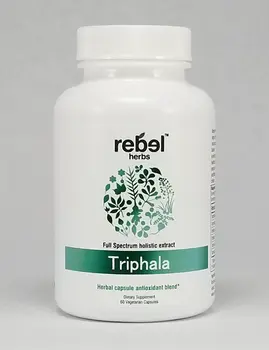What the Science Says?
According to the approved and confirmed by European Food Safety Authority (EFSA) health claims:

PROTEIN: Contributes to a growth in muscle mass, the maintenance of muscle mass and the maintenance of normal bones.*
(EFSA Journal 2010; 8(10):1811, EFSA Journal 2011; 9(6):2203). For EFSA scientific opinions click here and here.
VITAMIN A: Supports iron metabolism, mucous membranes, skin, vision, immune function, and cell specialization.*
(EFSA Journal 2009; 7(9):1221, EFSA Journal 2010;8(10):1754, EFSA Journal 2011;9(4):2021). For EFSA scientific opinions click here, here and here.

THIAMINE (B1): Supports energy metabolism, nervous system function, psychological function, and heart function.*
(EFSA Journal 2009; 7(9):1222, EFSA Journal 2010;8(10):1755). For EFSA scientific opinions click here and here.

RIBOFLAVIN (B2): Supports energy metabolism, nervous system function, mucous membranes, red blood cells, skin, vision, iron metabolism, protects cells from oxidative stress, and reduces tiredness/fatigue.*
(EFSA Journal 2010; 8(10):1814). For EFSA scientific opinions click here.

NIACIN (B3): Supports psychological function, energy metabolism, nervous system function, mucous membranes, skin, and reduces tiredness/fatigue.*
(EFSA Journal 2010;8(10):1757, EFSA Journal 2009; 7(9):1224). For EFSA scientific opinions click here and here.
VITAMIN B5 (pantothenic acid): Supports energy metabolism, mental performance, and reduces fatigue.*
(EFSA Journal 2009; 7(10):1218, EFSA Journal 2010;8(10):1758). For EFSA scientific opinions click here and here.

VITAMIN B6: Supports energy metabolism, nervous system function, immune function, and reduces fatigue.*
(EFSA Journal 2010;8(10):1759, EFSA Journal 2009; 7(9):1225). For EFSA scientific opinions click here and here.
BIOTIN: Supports energy metabolism, nervous system function, and healthy hair and skin.*
(EFSA Journal 2009;7(10):1209, (EFSA Journal 2010;8(10):1728). For EFSA scientific opinions click here and here.

FOLIC ACID: Supplemental intake increases maternal folate status, reducing the risk of neural tube defects.*
(EFSA Journal 2009; 7(9):1213, EFSA Journal 2013; 11(7):3328). For EFSA scientific opinions click here.
VITAMIN B12 (cyanocobalamin): Supports energy metabolism, nervous system function, immune function, and reduces fatigue.*
(EFSA Journal 2009; 7(9):1223, EFSA Journal 2010;8(10):1756, EFSA Journal 2010;8(10):1756). For EFSA scientific opinions click here, here and here.
VITAMIN C FUNCTIONS AS A CO-FACTOR IN THE PROCESS OF COLLAGEN SYNTHESIS.
VITAMIN C: Supports immune function, collagen formation, and reduces fatigue.*
(EFSA Journal 2009; 7(9):1226, EFSA Journal 2010;8(10):1815). For EFSA scientific opinions click here and here.
VITAMIN D: Supports immune function, bone health, and muscle function.*
(EFSA Journal 2008; 6(10):827, EFSA Journal 2011; 9(9):2382, EFSA Journal 2009; 7(10):1227, EFSA Journal 2009; 8(2):1468, EFSA Journal 2009; 7(10):1272, EFSA Journal 2011; 9(6):2203). For EFSA scientific opinions click here, here, here, here, here and here.

VITAMIN E: Contributes to the protection of cells from oxidative stress.*
(EFSA Journal 2010; 8(10):1816). For EFSA scientific opinions click here.

POTASSIUM: Supports nervous system function, muscle function, and blood pressure maintenance.*
(EFSA Journal 2010; 8(10):1469). For EFSA scientific opinion click here.

CHLORIDE: Supports normal digestion.*
(EFSA Journal 2010; 8(10):1764). For EFSA scientific opinion click here.

CALCIUM: contributes to normal energy-yielding metabolism, normal muscle function, normal neurotransmission, normal function of digestive enzymes and the maintenance of normal bones.*
(EFSA Journal 2009; 7(9):1210). For EFSA scientific opinion click here.

PHOSPHORUS: Supports energy metabolism, cell membranes, bones, and teeth.*
(EFSA Journal 2009; 7(9):1219. For EFSA scientific opinion click here.

MAGNESIUM: Reduces tiredness/fatigue, supports electrolyte balance, energy metabolism, nervous system function, muscle function, protein synthesis, psychological function, bones, teeth, and cell division.*
(EFSA Journal 2010; 8(10):1807, EFSA Journal 2009; 7(9):1216). For EFSA scientific opinions click here and here.

IRON: Supports cognitive function, energy metabolism, red blood cell formation, oxygen transport, immune function, reduces tiredness/fatigue, cell division, and cognitive development in children.*
(EFSA Journal 2009; 7(9):1215, EFSA Journal 2010;8(10):1740, EFSA Journal 2011; 9(4): 2040, EFSA Journal 2010; 8(10): 1814, EFSA Journal 2009; 7(11): 1360). For EFSA scientific opinions click here, here, here, here and here.




















































































































